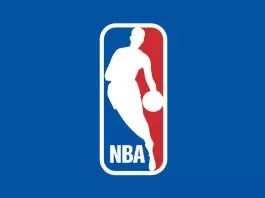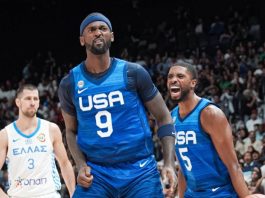 We’ve had a little over 24 hours or more to think about these new format changes, and I have even been thinking myself on how can this help the game grow? Even if the standard won’t be there for all to see, I can kind of understand why FIBA has done this.
We’ve had a little over 24 hours or more to think about these new format changes, and I have even been thinking myself on how can this help the game grow? Even if the standard won’t be there for all to see, I can kind of understand why FIBA has done this.
To those that know me; thinking for a long period of time hurts my brain.
To recap, FIBA’s Central Board have decided to skip the FIBA Basketball World Cup a year to 2019 once the 2014 version comes to a close, as a qualifier to the Olympics. They have also decided to expand the number of teams to 32 from the original 24.
The qualification period will be held over a two year period, consisting of six seperate windows. The period will start in November 2017 then go to February, June, September and November 2018 with the final leg in February 2019. To add to this, it won’t be so easy for Australia to qualify anymore as the Oceania section (Australia and New Zealand) will merge with Asia in the qualificaton rounds.
All continental tournaments, such as our beloved Eurobasket will now be staged every four years once the 2017 event is out the way. So from 2017, we will have Eurobaskets in 2021, 2025 and so on.
The qualification process that will come into place for the FIBA Basketball World Cup from 2017 will also include the continental events also, but will be adapted in the Olympic years from 2020 onward.
There were a few others, but let’s focus on these. I’ve read a few message boards, read a lot of Tweets and the general consensus is that these rules are ridiculous and FIBA is ruining basketball by implenting these changes.
Why would a basketball governing body want to ruin their own game? Sure, this sounds strange, but they are in-fact, rebuilding the game of basketball. Why? I’m not sure, really. But they want the game to get bigger. I see these changes as FIBA rebuilding the game we love so much.
It’s been circulated that FIBA did not inform Euroleague, ULEB or the NBA of these new changes which, if true, isn’t a great look on FIBA’s side. But it’s a mere rumour at this point and it’s Chinese media whispers. But, while these new format changes to the calendar are deemed ridiculous by fans and some journalists. Coaches and directors of Eurolague and NBA teams are probably jumping for joy right now.
Dallas Mavericks owner Mark Cuban will more-or-less take back his infamous opinions on international basketball now and be full of praise as his stars will not be competing for their country in any qualifiers.
As the qualifiers are now in-season, the Euroleague stars won’t be coming out to play either, or it’s doubtful that they will. Coaches won’t want their stars to risk injury by playing in a game that has no meaning to them.
But while most fans and writers look and focus on those points, I’m reminded of the press conference NBA Commissioner David Stern and Euroleague CEO Jordi Bertomeu had in Berlin during the NBA Europe pre-season tour last month. Stern said that the number of FIBA-listed basketball players was at an all-time high and that more players were coming through the ranks. Basically put, there needs to be more opportunities for breakthrough players to experience international basketball and more chances for new youth players to come through the junior ranks.
It’s a risk, considering most FIBA qualifiiers will be games played between second or even third string sides, and some nations will be greatly affected; such as Great Britain, who have two NBA players on the roster and Euroleague players they count on. These new rules could very well spell the end of Luol Deng, if he hasn’t already called it quits by then and Joel Freeland, who is expected to lead Team GB forward “post-Deng”.
FIBA want the game to grow, and it seems like they want more young talent going through the fishnet. Of course FIBA hasn’t gone on record to say any of this – after all it’s my opinion – but if they were quizzed up on this, I would guess this would be one of the reasons given.
It’s a definite risk though as international games, especially qualifiers don’t exactly generate big crowds. Take the recent Eurobasket qualifying tournament; Cyprus were drawing crowds of 200+, Albania bringing in around 300-400 fans and this was on a regular occurance. Okay, so Poland had crowds normally in the region of around 2,000-3,000 but some of them came to see Marcin Gortat, as some Polish writers told me. There’s no denying that the Poles have their dedicated and loyal fan base, but not a base of over a thousand people.
Fans pay to see their team play, yes. But they also want to see the stars as well. GB fans want to see Luol Deng and Joel Freeland. Turkey wants to see Hedo Turkoglu, Ersan Ilyasova and Omar Asik and with these format changes, Russia’s fans would like to pay money to see an actual team on court, they might as well be fielding their youth side(s).
But that is FIBA’s plan… I’m guessing.
I’m on the fence with this, on one hand, I can see why they have done this but the international game as I see it once these changes take effect will send the game in to a rebulding stage, kind of like a championship winning team that has lost its key players and needs to ‘rebuild’ to become great again.
Only we’re not talking about a team… we’re talking about the whole sport of basketball. I hope FIBA pull it off, but it’s a risk.





